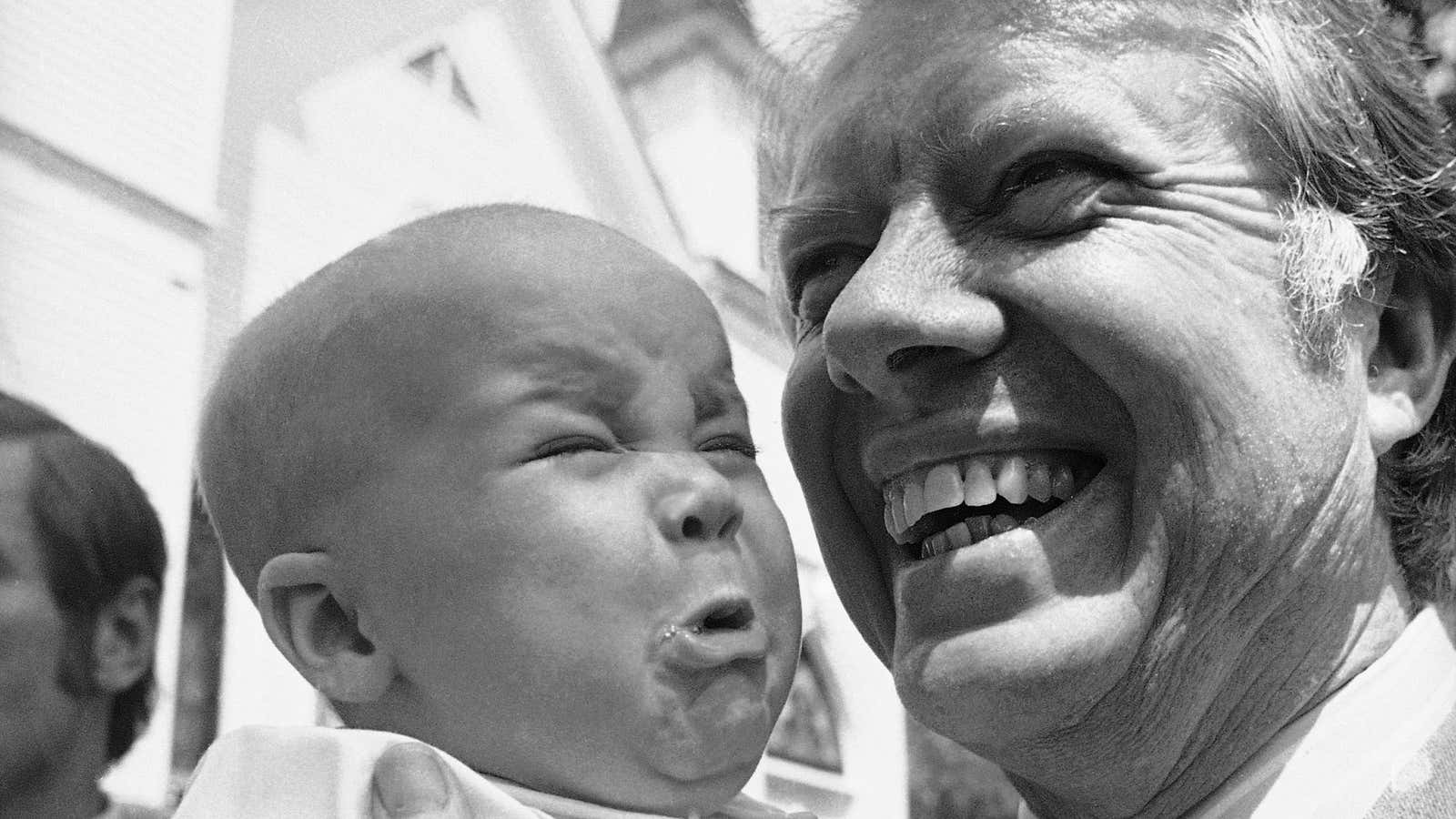If you’re in a “snit,” you’re huffing and puffing, throwing your weight around, and making good use of your lower lip. Someone who is “snitty” is similarly irked. And a “snit fit”—well, you get the gist.
“Snitty” is in the headlines after US attorney general William Barr accused a highly critical letter from special counsel Robert Mueller of being “a bit snitty.” But where does this peculiar Americanism originally come from?
The short answer is, no one’s entirely sure. The Oxford English Dictionary traces the word back to a 1939 play by Clare Boothe, Kiss Boys Good-bye. In it, a character declares that they’ve cried themselves into a snit, before clarifying: “I do deplore it, but when I’m in a snit I’m prone to bull the object of my wrath plumb in the tummy.”
It’s not clear whether Boothe invented the word, or whether it was unusual slang that she helped to popularize. As the Saturday Review of Literature reported, both it and its “state of being” were unknown to the people of Georgia, USA, before “Miss Clare Boothe isolated and defined it.” The following year, the Boston Globe noted that “snit isn’t a horrid word, at least not the way [Boothe’s play] uses it.”
Beyond a legalistic character called Snitternitch, who appears in a 1927 opera libretto by Francis Neilson, other literary examples of any kind of snit that predate the play are thin on the ground.
The word “snit” has other uses elsewhere in the US. In Minnesota, Wisconsin, Iowa, Michigan, and Illinois, the word can be used to mean a small portion of beer, usually served alongside a Bloody Mary. Snits of this kind seem to be an invention of the 1950s and are believed to come from the German word “schnitt,” meaning cut.
While both “cut” or “cut up” have been used in English to describe being distressed for hundreds of years, it’s probably still a bridge too far to assume that they’re the inspiration behind Boothe’s use of the word. We may never know the truth—but it certainly isn’t worth getting in a snit about.
